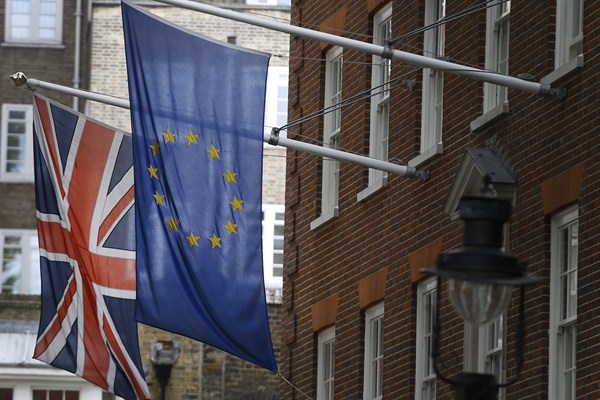The refugee crisis dominated last month’s European Union summit in Brussels, but the U.K.’s planned referendum on whether or not to stay in the EU was also on the agenda. Although a final agreement was not reached, all sides committed to work toward finding solutions and resolving British demands on renegotiating the status of its EU membership at the next summit in February. The U.K. referendum is expected to take place this summer, but the exact date has yet to be decided.
While his government was implementing unpopular austerity measures in January 2013, British Prime Minister David Cameron announced that, if re-elected, he would renegotiate the terms of the U.K.’s EU membership and put the results up for a referendum. Cameron and his Conservative Party performed surprisingly well in last May’s elections and then followed through on their renegotiation pledge, launching the process to potentially terminate Britain’s membership in the 28-nation bloc. In November, Cameron sent a letter to Donald Tusk, the president of the European Council, stating that the U.K.’s continued membership would be contingent on the EU enacting reforms in areas of economic governance, competitiveness, sovereignty and immigration.
Some of the specific proposals laid out in Cameron’s letter have been widely accepted by EU member states, such as cutting red tape for small business and working toward trade agreements with the United States and Japan. But the proposed immigration reforms have stoked controversy.

